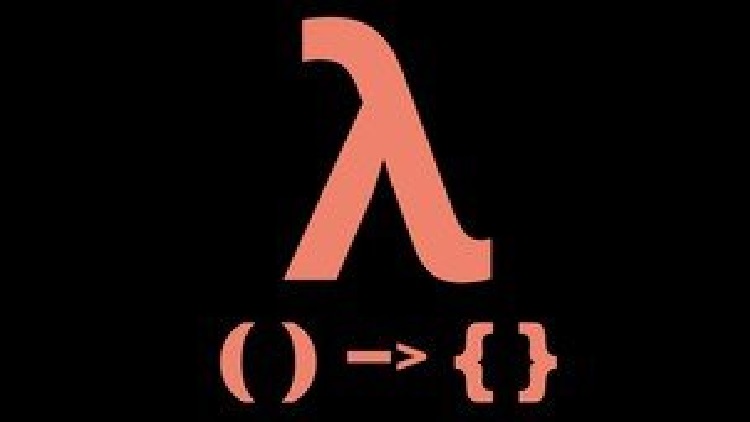Learn the new Java 8 Features by coding it,This is a pure coding course and you will get a complete understanding of all the Java 8 features by coding it
Why Should I take this course ?
- This course will help the Java developers to build their knowledge on the new Java 8 features
- All the new features such as Lambdas, Streams , Optionals, Functional Interfaces and Parallel Programming will be explained via code
- This course will give you the confidence on implementing new Java 8 features in real Java projects
- By the end of this course you will have a complete understanding of new Java 8 functional features
Course Overview :
Section 1 – Getting Started:
- This section explains about what will be covered in this course
Section 2 – Why Java-8 ?:
- This section covers Why Java 8 is important?
- This section explains about difference between Imperative Programming and Declarative Programming
Section 3 – WorkSpace Setup – Mac/Windows:
- This section covers the installation of Java and IntelliJ in Mac and Windows
Section 4: Introduction to Lambda
- This section covers the Why Lambda is needed , Lambdas Syntax and How to implement Lambdas ?
- Implement the Runnable interface using Lambdas
- Implement the Comparator interface using Lambdas
Section 5: Lambdas and Functional Interfaces
- This section covers the new Functional Interfaces that got introduced as part of Java 8
- Consumer Functional Interface
- Predicate Functional Interface
- Function Functional Interface
- Supplier Functional Interface
Section 6 : Constructor and Method References
- This section covers the new Method Reference and the Constructor Reference
- How Method Reference simplifies the code
- How to use Method reference along with Lambdas
- How to use Constructor Reference to create new objects
Section 7 : Lambdas and Local variables ( Effectively Final )
- This section covers the local variable and how it should used in Lambdas
- Definition of Effectively Final scope of a variable
Section 8 : Streams API
- This section covers the Streams API which is one of the important feature that got introduced as part of Java8
- How the Stream API Works Internally ?
- How Collections are different from Streams ?
- How to debug a Stream ?
Section 9 : Streams API Operations
- This section covers different Streams API operations that can be used in Streams to achieve an objective
- Streams Operations such as :
- map()
- flatMap()
- distinct()
- count()
- filter()
- reducer()
- Map, Filter and Reduce pattern
- max()
- min()
- limit()
- skip()
- allMatch(), anyMatch() and noneMatch()
- findAny() and findFirst()
- Explanation of Stream operations that are Short Circuit operations
Section 10 : Streams API – Factory Methods
- This section covers different Streams API factory method that can be used to create Streams
Section 11: Numeric Streams
- This section covers the Introduction to Numeric Streams which can be used to perform some numeric related operations
Section 12: Terminal Operations Streams
- This section covers different way to collect the data from the Streams Pipeline
- Terminal Operations such as :
- joining()
- counting()
- mapping()
- max(), min()
- sum()
- average()
- groupingBy()
- partitioningBy()
Section 13: Streams API – Parallel Processing
- This section covers how to perform the Parallel processing using Streams
- How Parallel Programming makes use of the processors in your machine to perform concurrency operations?
- How Parallel Programming works internally ?
- How to check the performance between the sequential and parallel programming ?
- Scenarios when not to use parallel programming
Section 14: Optional
- This section covers What is Optional and the benefits of Optional
- How Optional can help you avoid Null Pointer exception
- Exploring the different operations that are part of Optional such as :
- empty()
- ofNullable()
- of()
- orElse()
- orElseGet()
- orElseThrow()
- isPresent()
- ifPresent()
- map()
- flatMap()
- filter()
Section 12: Streams API – Parallel Processing
- This section covers how to perform the Parallel processing using Streams
- How Parallel Programming makes use of the processors in your machine to perform concurrency operations?
- How Parallel Programming works internally ?
- How to check the performance between the sequential and parallel programming ?
- Scenarios when not to use parallel programming
Section 12: Optional
- This section covers What is Optional and the benefits of Optional
- How Optional can help you avoid Null Pointer exception
- Exploring the different operations that are part of Optional such as :
- empty()
- ofNullable()
- of()
- orElse()
- orElseGet()
- orElseThrow()
- isPresent()
- ifPresent()
- map()
- flatMap()
- filter()
Section 12: New Date/Time Libraries
- This section covers new Date/Time Libraries such as LocalDate, LocalTime, LocalDateTime
- How to find the difference between the LocalDate, LocalTime and LocalDateTime using Period, Duration
- How to represent the time in the Machine Readable Format using Instant
- How to use the TimeZone using the ZonedDateTime
- How to Format the Date using the DateTimeFormatter
By the end of this course you will have a complete understanding of all the Java 8 features and implement it in real Java projects
